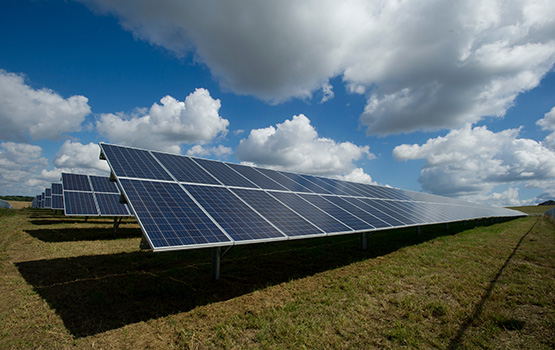The Australian Energy Council (AEC) has endorsed a growing call for an economy-wide net zero emissions by 2050 target for Australia. The call follows the publication of a letter sent by Opposition Leader Anthony Albanese to Prime Minister Scott Morrison, a letter praising aspects of the Government’s Technology Roadmap and calling on the PM to end the climate wars by coming to a bipartisan agreement on energy policy.
Australia’s climate wars are settling into a second decade, and many around the country are realising that the federal policy vacuum is itself a catalyst for chaos. In that time, Australia’s politicians have been dithering, wittering, and back-stabbing over the apparently confounding prospect of the journey instead of simply taking the first step.
Labor Leader Albanese’s supplicant extension of the olive branch barely asks anything of the Coalition, not even the need to agree on emissions targets. However, even this piddling attempt was derided by an obstinate Government. According to the ABC, Energy Minister Angus Taylor criticised Albanese, “They didn’t explain how their energy policies will create a single job,” he said.
And yet, the Australian Energy Council, representing 24 major electricity and downstream natural gas businesses generating the vast majority of Australian energy (including the owners of all coal-fired power plants in the NEM), decries both parties for their frail immobility.
“The first step to reducing carbon emissions is agreement on a long-term target which can act as the starting point for constructive consensus,” said AEC Chief Executive, Sarah McNamara. “Settling on an economy-wide target will let us then decide the best ways to get there and what policy and mechanisms could be applied.”
The push for an economy-wide target is a push for the bare minimum, a start, the minimum standard the federal government has sought to avoid with all the determined evasive tactics of a toddler chucking a tantrum to avoid a shower. Rather than set a target to work towards, the Morrison Government has produced only a damp squib otherwise known as its long-awaited Technology Roadmap.
Roadmap to Nowhere
The Roadmap, officially entitled “Technology Investment Roadmap Discussion Paper: A framework to accelerate low emissions technologies” (Roadmap), opens with a statement: “Australia consistently meets and beats our climate change targets.” And yet, Taylor told the ABC that the Government would not “commit to targets without a very clear plan.” So which is it? Because calling Taylor’s Roadmap a clear plan is like calling calling Kyle Sandilands a public-intellectual.
Ironically, if the Morrison Government had committed to a target, that commitment in itself would represent more of a plan than the one Taylor presented in May. The Roadmap amounts to little more than a broad overview of energy technologies, however, in that view “low emissions” technology, especially gas, sticks out, and the most bankable of renewable technologies, such as solar PV, is treated like the child of wealthy absent parents, its accomplishments are lauded but the Government dare not give it the attention it deserves.
“At its core,” says Taylor in his Ministerial Forward, “this is about technology not taxes…It is an approach based on rigour, discipline and optimism, not ideology.” But Taylor’s determination to develop a plan before committing to a target is counter-intuitive, and nothing protects the counter-intuitive more than ideology. “Technology not taxes,” repeats Taylor, and yet, if a target were committed to, as with a deadline, the market and technology could better decide for itself how to achieve it. Without a target the market balks, this has been empirically observable with the dramatic drop in spending on large-scale renewables as the market shuddered at the federal policy vacuum beyond 2020.
Taylor says he has a “forward-looking philosophy”, but so does a snail, that doesn’t mean it’s going anywhere fast. “Australians want action on climate change,” said McNamara, “as well as affordable, reliable energy and that will continue to require the adoption of new technologies and investment…But our efforts need to be broader and a net zero emissions target across the economy we believe is the best way forward to deliver the Paris temperature goals at the lowest economic and social cost.”
It should be stated that the AEC is not asking for the impossible. “The net zero economy-wide target does not imply that electricity emissions must necessarily fall to zero by 2050,” noted McNamara. “Depending on technological developments, it may prove cost-effective to have a small level of emissions offset by carbon sinks elsewhere.”
Whatever the case may be, the AEC said it supported the Paris Agreement “and recognised the need for developed countries to transition to net zero emissions by 2050 to help achieve the Agreement’s temperature goals.”
This content is protected by copyright and may not be reused. If you want to cooperate with us and would like to reuse some of our content, please contact: editors@pv-magazine.com.









2 comments
By submitting this form you agree to pv magazine using your data for the purposes of publishing your comment.
Your personal data will only be disclosed or otherwise transmitted to third parties for the purposes of spam filtering or if this is necessary for technical maintenance of the website. Any other transfer to third parties will not take place unless this is justified on the basis of applicable data protection regulations or if pv magazine is legally obliged to do so.
You may revoke this consent at any time with effect for the future, in which case your personal data will be deleted immediately. Otherwise, your data will be deleted if pv magazine has processed your request or the purpose of data storage is fulfilled.
Further information on data privacy can be found in our Data Protection Policy.